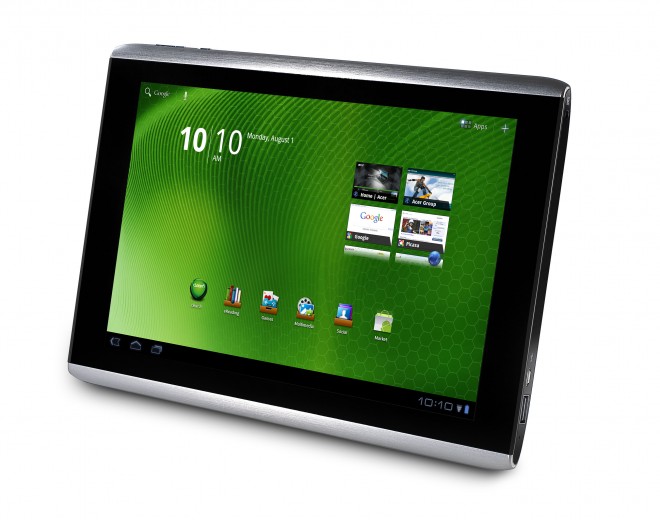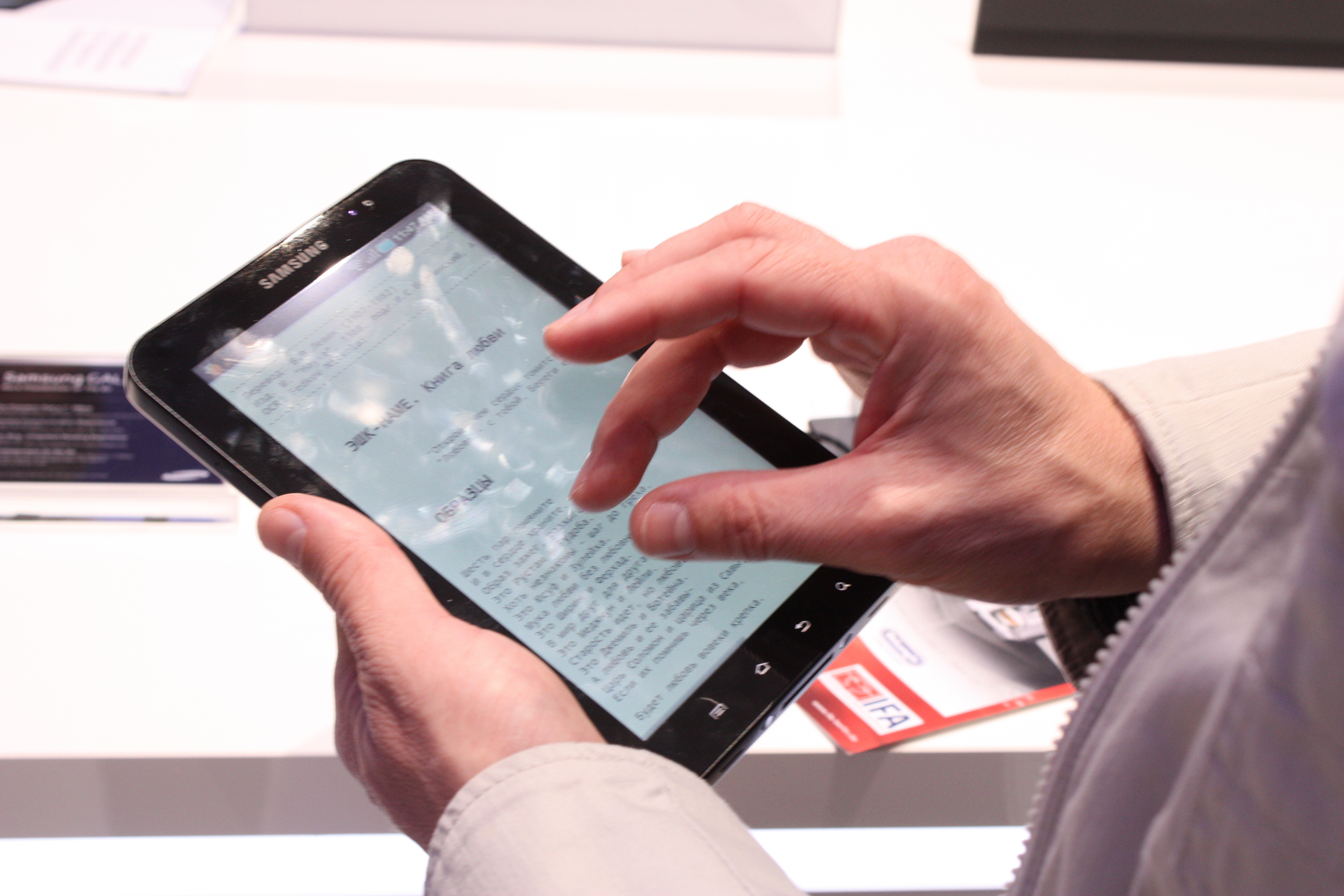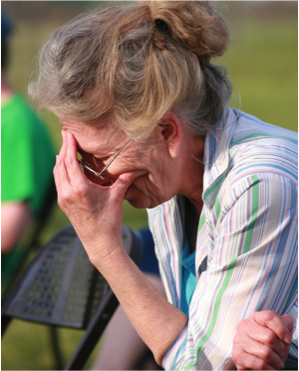Senior Care: Technology and Seniors

Forget learning how to program the VCR—the technology seniors have their eyes on today includes mobile gadgets, wireless connectivity and digital devices to enhance their lives and provide themselves with a greater sense of safety and personal support.
There have been ample research studies conducted and statistical results consistently uncovered that: It is a popular concept that technology and seniors can blend together and live in a balanced environment.
Of course, with the challenges of home health care of seniors, it is no wonder that seniors are turning to technology to augment their ability to remain at home longer and regain some of their lost independence. Gone are the days when we would worry about our elderly parents living by themselves. Now, we can simply check on their health status (remotely) as technology aides us.
Naturally, with this increasing trend and available technology seniors can keep themselves in the loop and live out their normal lives with minimal invasion of privacy. If technology can be easily accessed and used by the younger population, seniors can handle technology as well? As a result, seniors now purchase top-of-the-line gadgets like smart phones, tablet readers, home PC’s, portable music players and laptops. Some of these seniors even kick it up a notch and decide to purchase gaming consoles. Truly, technology is slowly breaking new boundaries and making seniors more adaptive to their technological environment.
But then, do these senior citizens take the time to actually learn about these gadgets? While a lot of technological breakthroughs have been beneficial to seniors in terms of rehabilitation and treatment, there is no guarantee that anything a senior citizen wishes to buy will be conducive for his or her wellness, unless he or she chooses to learn about it.
With that in mind, seniors should keep in mind the following tips to ensure they work well with these new technologies.
Get connected because seniors want to, not because they have to
Many seniors face the pressure to be connected to social media platforms. Usually, this pressure is due to the coaxing of their kids who want to connect with them digitally. While it is nice for a senior citizen to set up a Facebook or a Twitter profile, he or she should first examine their reason for connecting on the web. Do they really want to establish that connection and exposure? Or do they do it just to get their kids off their back?
Knowing the reason for using technology is important because the reason has to be powerful enough for the senior to push through with the learning process. As long as the seniors who use technology learn about it in order for them to message their loved ones easily, you can be sure that they will be more than willing to learn.
Be willing to invest for convenience
Seniors should do well and not dwell on the price of technological gadgets. More often than not, a lot of cheap gadgets are acceptable, but they are not necessarily the best.
Seniors should go ahead and skip on asking about the price – they should focus on the features of the gadget instead. Will it be convenient to use? Is it senior-friendly? Will it meet their lifestyle needs? Does it have ease of access features? Will it be supported and around for the long term?
Ask advice from the best resources – the senior citizen’s family.
Usually, it’s better for a senior to ask a family member to help them set up their gadgets. Talking to customer service representatives is a bit difficult because these agents follow a script – sometimes, these scripts can’t be customized to be understood by the casual technological consumer (this is not simply a senior challenge).
Finding a teenager relative who can explain it in simpler terms will yield better results. Don’t be afraid to ask for their explanation and advice – they’re your family (or connect with a Home Care Service provider who can safely facilitate this on your behalf).
Yes, technology exists and it is interesting to dabble in it. At the end of the day, what really matters is if a senior was able to learn how to use it and benefits from it.
So now that we’ve briefly discussed how technology can effectively interface with our senior generation…Is Grandma going gadget-crazy? Not quite yet? Yes? According to a 2012 survey by Pew Research: The number of older adults using the Internet and related technological devices are increasing, with over half of seniors using the Internet and owning smart phones. Realistically, there’s still a long way to go before we can consider ourselves, or our senior citizens to be fully tech savvy. The fact is, today’s technology can keep us engaged, connected, mentally active, physically safe. Thus making it increasingly important for our loved ones to keep themselves in the high-tech loop. So what devices should seniors and their caregivers have their eye on?
Must-Have Technology for today’s Senior:
- Tablets and iPads: From games that promote brain fitness to apps that track personal health information, tablet can have a variety of positive impacts on seniors’ lives. Seniors can view photos, listen to music, read, learn languages—plus these devices are lightweight, their touch screens are easy to use, and font sizes can be adjusted for easier reading.
- Hearing aids: Having to wear a bulky listening device is no longer an excuse for older adults to go without hearing aides. The continuing miniaturization of hearing devices and the improvement of wireless transmission methods like Bluetooth has meant great strides in hearing assistive technology. Hearing aides can be tiny, transparent, and nearly invisible—or even implanted inside the ear itself.
- Video and computer games: Whether it’s a sporting video game, arcade games, Angry Birds, or the Nintendo Wii, video games have been shown to improve cognition, mental agility, and even physical health for seniors, with devices such as the Wii Fit. Not only that, video games can promote social interaction.
- Skype: Speaking of social interaction, one piece of software every senior should get familiar with is Skype. Communicating with family long-distance is a snap, you can view your loved ones in real time, and it’s available for smartphones, tablets, and regular computers.
- Health tracking software: If your senior loved one has a computer or a mobile device, they should be aware of the wealth of software features and apps available to help monitor their health, remind them of their medications, track their nutritional needs and empowering them to take charge of their own wellness. It’s a branch of technology that’s invaluable for caregivers, too.
- Wireless Internet: Most of the technologies on this list wouldn’t be possible without wireless Internet. If you want your senior parent to take full advantage of these devices, make sure their residence is internet-ready. Even nursing homes are now using wireless Internet technology to make it easier for residents and care providers to communicate quickly.
- Smartphones: Cell phones are becoming more senior-friendly, with models that have larger buttons, larger font features, readouts as well as photo speed dialling and voice command to make usage easier. Not only are cell phones crucial to helping seniors stay connected with friends and family, they may also help perform critical safety functions like providing medication reminders and GPS locations.
- Wireless home monitoring: Home monitoring systems that employ sensor devices can be, literally, lifesavers for those seniors who live alone, either at home or in an assisted living environment. They can detect emergencies such as falls, report unusual behaviour, and even track vital signs—without intruding on privacy.
- GPS: If you’ve got a senior loved one who is concerned about getting lost, or who has dementia and occasionally wanders, GPS technology can immediately alert caregivers to their location if they leave their comfort zone. There are separate GPS trackers that attach to the wrist or clothing, as well as smartphone GPS apps.
- Home assistive devices: Assistive technology in the home can go far in helping seniors remain independent and safe in their own homes. Besides home monitoring and GPS, there are devices such as LED lighting, medication dispensing appliances, photo-enhanced phone diallers, and stove shut-off systems, all of which can help seniors with mild cognitive and motor impairment.
While these technologies and devices do enhance the lives of our elderly and allowing them to remain in their homes for as long as possible, certainly are not aimed at replacing the role of routine caregivers altogether. Technology is to be use in conjunction with caregiver visits to ensure devices are being used and functioning appropriately. As conditions of the Clients change so must the range of technologies and care giving services.
We, at In Our Care – Home Care Services can determine what technology is best suited for you depending on your current challenges, goals and objectives. Talk to us about it, your in-home assessment is at no cost and may identify simple solutions to enhance your daily life, promote increased personal safety and peace of mind. Our ultimate objective is to help you remain independent, protected, safe, and in you home / community.
You got questions, we have answers: (905) 785-2341 or email us at homecare@inourcareservices.com






